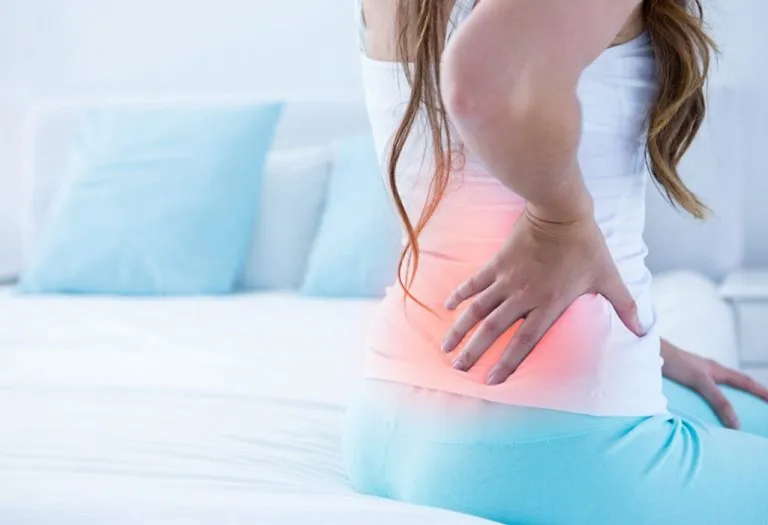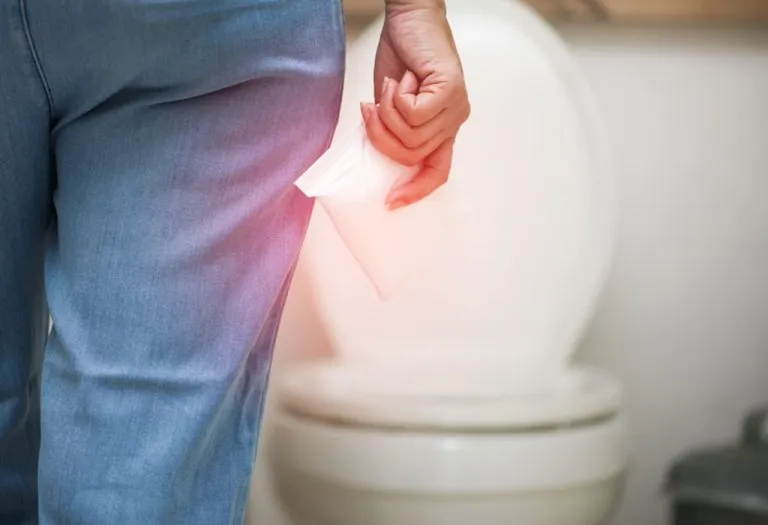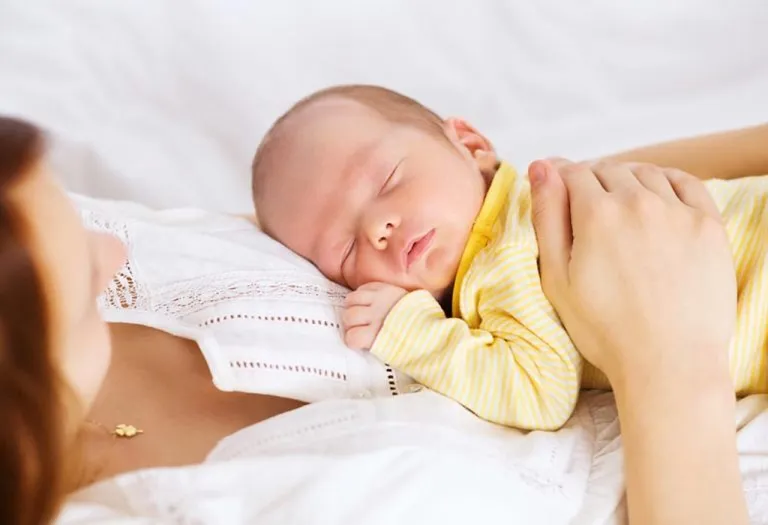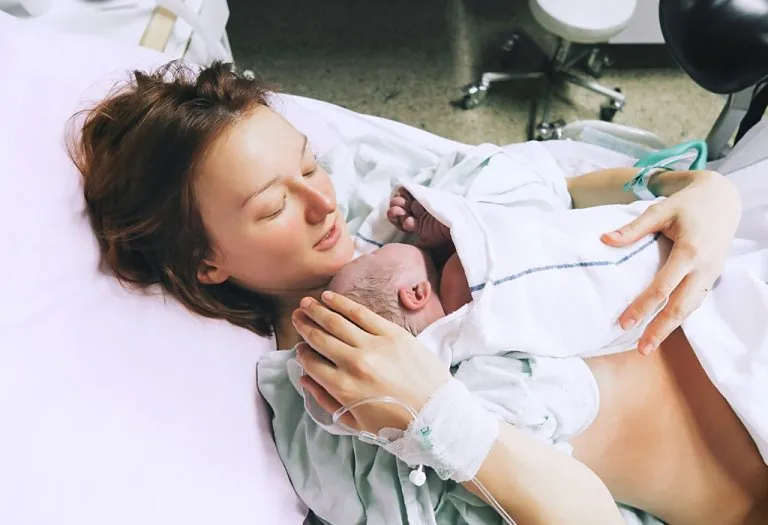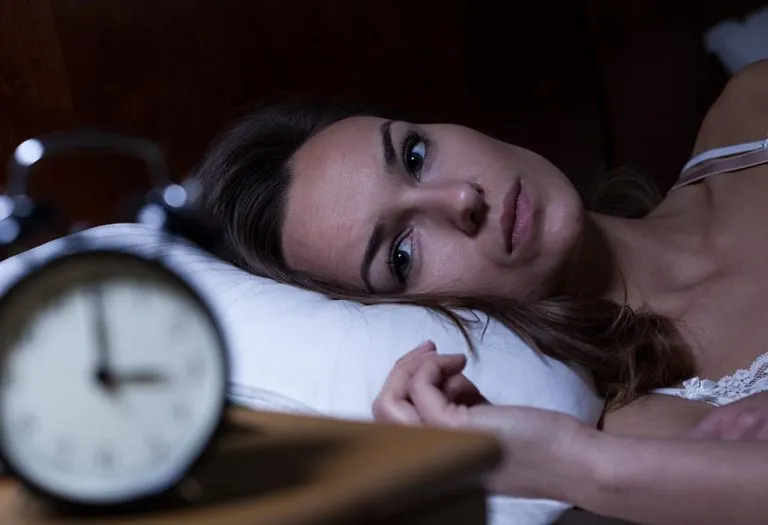Postpartum Back Pain – Causes and How to Get Rid of It

- What Is Postpartum Back Pain?
- What Are the Causes of Back Pain After Pregnancy?
- How Long Does Back Pain Last After Delivery?
- How to Get Rid of Back Pain After Childbirth
- When to Consult a Doctor
- FAQs
A woman’s body goes through a lot during and after pregnancy. When a woman is pregnant, her life takes a 180-degree turn. Her eating habits, sleeping patterns, posture, the way she walks, etc., changes completely. But she is content with the thought that at least after the delivery, her life would be back to normal. But that may not be the case! There are some pregnancy problems that may trouble her even after delivery. Back pain after delivery is one such problem. Yes, back pain is common during pregnancy but it may not really go away soon after the delivery. If, post-delivery, your back feels sore and is uncomfortably stiff, you might be suffering from postpartum back pain.
What Is Postpartum Back Pain?
The myriad of changes that come along with pregnancy can lead to several discomforts like back pain. However, for some women, this severe ache, stiffness, and soreness in the lower back may not subside even after pregnancy. They may experience backache postpartum. And this lower back pain after delivery can also hinder their recovery, making it difficult for them to move or even sit for long.
What Are the Causes of Back Pain After Pregnancy?
Some women continue to experience backache post-pregnancy. If you have recently delivered your little one and are experiencing back pain, you must understand what may be causing it. Mentioned below are some causes of back pain after delivery.
- The main cause of back pain post-delivery is a change in the hormonal levels. A woman’s body releases progesterone and relaxin hormones during pregnancy, which relaxes the ligaments and joints of her pelvic bone to make the delivery of the baby easier. But these hormones may stay in the mother’s body for a few more months and may lead to lower back pain.
- As a woman’s body goes through a lot of physical changes during pregnancy, she may experience lower back pain from the second trimester. And it may continue a few months postpartum.
- An increase in weight during pregnancy can sometimes lead to lower back pain. During pregnancy, when a woman starts putting on weight, her knees and muscles carry the additional burden, which may trigger lower back muscles. This pain may last even after the delivery.
- Another reason for post-pregnancy backache is the expansion of the uterus during pregnancy. As the uterus grows, there is an additional strain on the lower abdominal muscles and lower back of a pregnant woman which causes back pain. This pain may take a while to subside even after delivery.
- If a woman has a normal delivery, then while pushing out the baby, many of her muscles which have been stagnant in the normal course of her life, would work and stress out. This can lead to back pain during pregnancy and post-pregnancy too.
- Sleepless nights post-delivery and bending and lifting up the baby frequently can add to the misery, and the back pain may continue for longer.
- Incorrect posture while breastfeeding the baby can stress the lower back muscles and lead to back pain.
- If a woman does physically strenuous work during or after pregnancy, then it might also lead to back pain.
How Long Does Back Pain Last After Delivery?
Most of the bodily functions get back to normal after delivery. If you recently had a baby and experienced back pain while pregnant, the back pain may not leave you immediately. In fact, postpartum back pain may become your frequent companion. And it might take almost six months for your body to get back to normal and for the relaxin hormones to subside in your body. By this time, your back pain should subside. Also, by this time, as your body regains its strength and the muscles get toned, your joints and ligaments should get back to normal, and the back pain may go away. However, if you do strenuous physical activities post-pregnancy, then the back pain may last for almost for a year. Being obese or overweight can also increase the risk of perennial back pain.
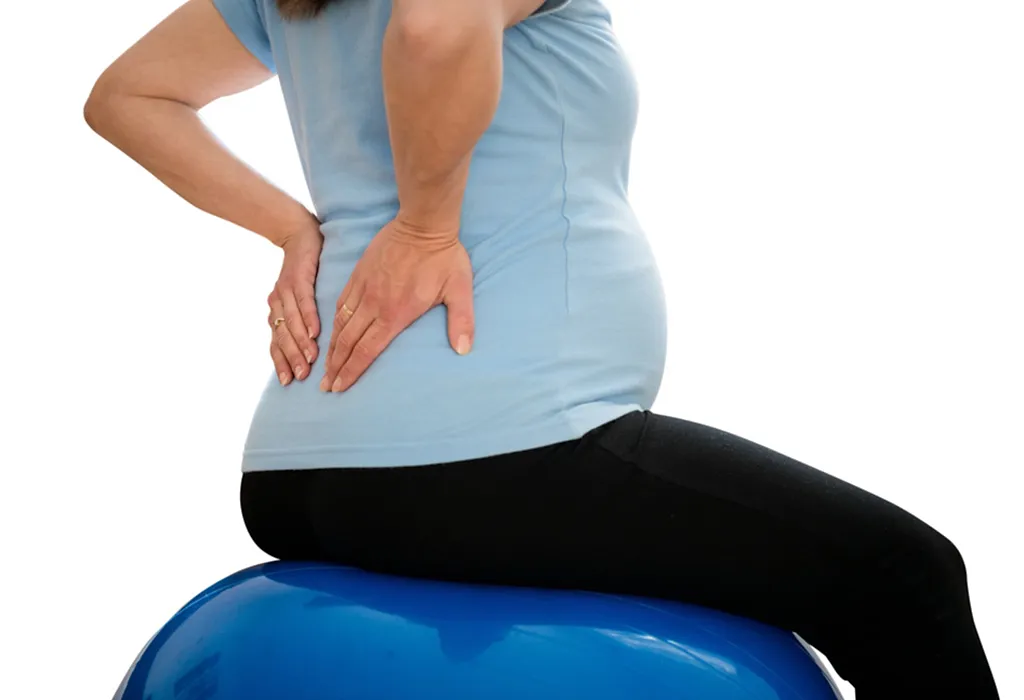
How to Get Rid of Back Pain After Childbirth
Post-pregnancy, a mother has a lot of things to worry about. If you are suffering from back pain postpartum, don’t add it to your list of worries. There are several home remedial measures you can try to treat back pain.
- There are a lot of exercises that you can try for back pain after delivery. Exercising can help lower the stress on strained muscles and ligaments. Post childbirth, you can start with relaxing yoga poses and stretching exercises as they will improve your flexibility and endurance. If you had a C-section delivery, then the best exercise would be walking. Walking for even 20-30 minutes daily can relax your body. In fact, it is, one of the best exercises to start with.
- Do not indulge in physical activities immediately after delivery. And take as much rest as possible especially if you have had surgery. Your muscles and joints need rest after long months of stress.
- Refrain from lifting heavy weights or indulging in weight training exercises as it can cause stress on your muscles and joints.
- Maintain a good posture. Sit straight and try not to lean on to your baby while breastfeeding. Your back should be upright while you breastfeed your little one. You can even lie down on your side comfortably while breastfeeding.
- If you experience lower back pain, then use a footrest while sitting on a chair to keep your legs slightly raised from the ground and to support your lower back muscles. Also, keep soft cushions on your chair to support your back.
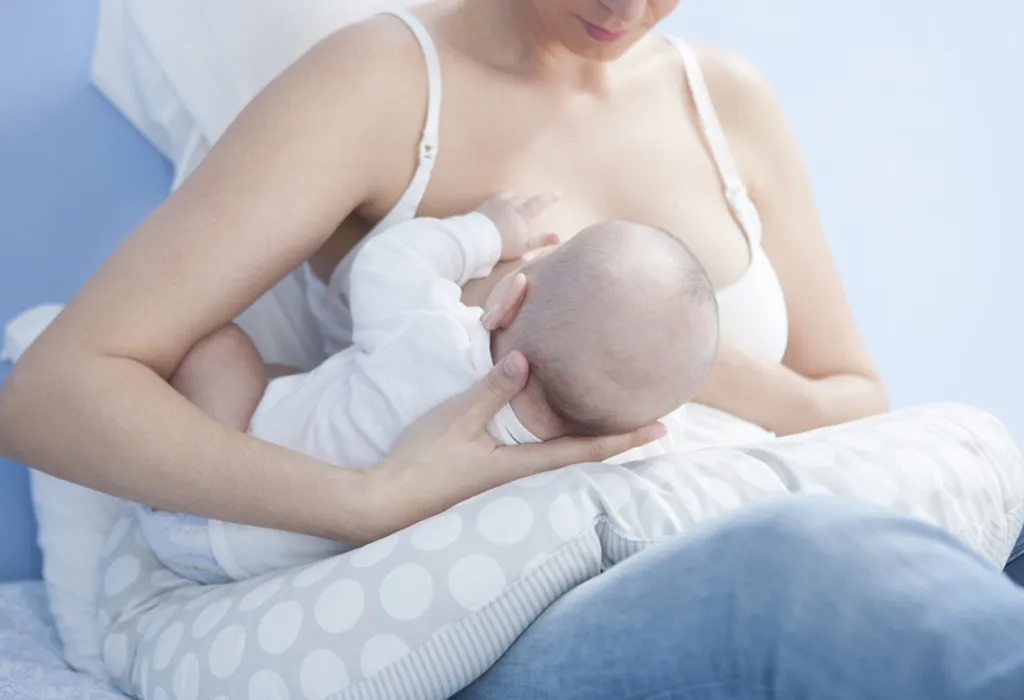
- Carrying your baby for long periods of time on your hips can add to the tension, so start using a front pack which has support to carry your baby while travelling.
- Avoid wearing high heels for a few months after delivery.
- Sleep in a comfortable position. Use a soft and thin pillow that’s firm enough to support your head. Ideally, you should use a pregnancy pillow or a couple of regular pillows to support your back while sleeping even after delivery.
- Get relaxing oil massage from an experienced masseur at regular intervals. Regular massages will help increase blood circulation in your body and will provide relief from aching muscles.
- You can even try a hot or cold compress to relieve back pain. You can place a hot water bag or cold water bag under your back to get relief from back pain.
- You can even use a pain relief ointment. Apply it on your back once in a while. It will provide you with instant relief.
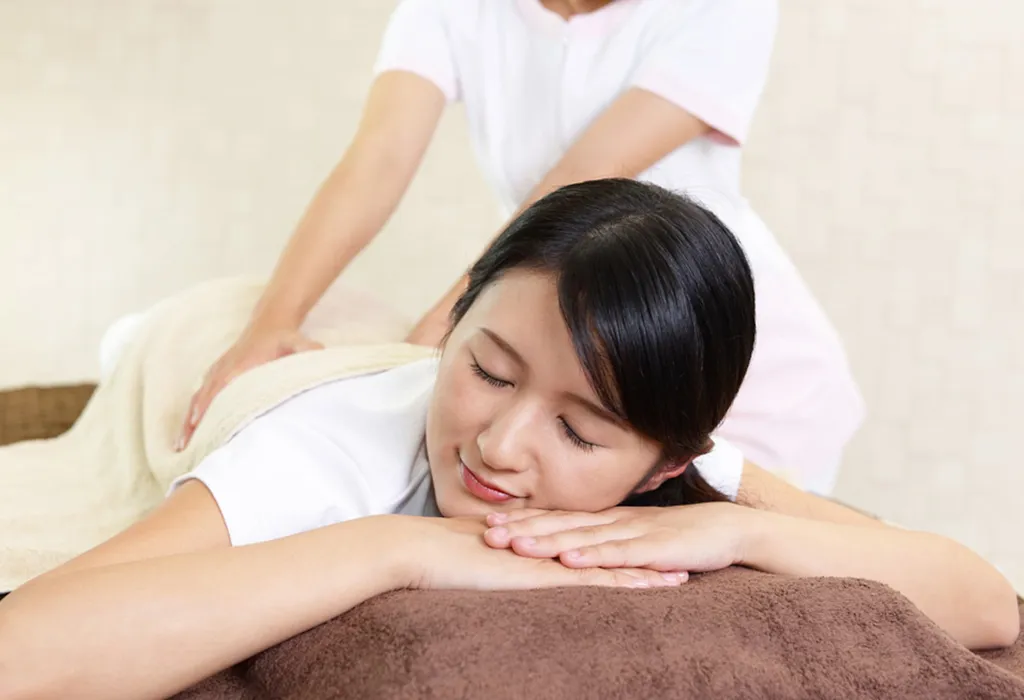
- Have hot water baths for a few weeks or months after delivery. Taking bath in hot water will relax strained muscles and ligaments, and provide you relief.
- While picking up something from the floor, bend your knees, not your waist. Do not bend your waist or stretch out your hands as it can strain your back.
- While lifting your baby in your arms from the bed or the floor, get closer to him then lift. You can also get into the kneeling position to lift the baby. Do not stretch out your arms to lift the baby from a distance.
- You may also do some pelvic exercises as suggested by your trainer as a part of back pain after delivery treatment.
- Consult a nutritionist and follow a healthy diet as per the needs of your body. It will help you lose weight and thereby lessen the stress on your back muscles.
- Use breastfeeding pillows while feeding the baby especially in the early stages of nursing as you won’t be comfortable with different breastfeeding positions. Make sure your back is supported while you breastfeed your little one – avoid bad posture at all cost.
Even after following the aforementioned tips, if the back pain still persists, then it is suggested that you consult a specialist. By conducting a detailed examination of your body a specialist might recommend appropriate medicines and physiotherapy sessions.

When to Consult a Doctor
Whether you maintain a good posture or not, you may not experience back pain during the day. Similarly, if you indulge in physical activities, you may not experience discomfort during the day. But at night, your joints may swell and that might result in pain during the night.
Postpartum back pain should subside after a few months of delivery, but you need immediate medication in the following cases:
- If the back pain is accompanied by a fever.
- If the back pain is severe and is getting worse day by day.
- A feeling of numbness in both legs or one leg.
- If you experience traumatic back pain caused by tripping or falling.
- If the back pain continues with the same intensity even after six months.
FAQs
1. Can epidural anesthesia cause long-term back pain after delivery?
Epidural anesthesia is commonly used during labor to manage pain, but some women wonder if it can lead to long-term back pain. While epidural-related back pain is usually temporary, lasting only a few weeks, it is rare for it to cause chronic back pain. However, improper posture during labor or pre-existing back issues may contribute to lingering discomfort.
2. How can Cesarean section impact back pain after delivery?
A Cesarean section can impact back pain after delivery due to the incision site and changes in posture during recovery. Women recovering from a C-section might adopt compensatory movements to avoid stressing the incision, which can lead to back pain. Proper post-operative care and gentle exercises can help alleviate this discomfort.
3. Is it normal to experience back pain after delivery even if there was no pain during pregnancy?
Yes, it is possible to experience back pain after delivery even if there was no pain during pregnancy. Postpartum activities like lifting the baby, carrying heavy items, and poor posture while breastfeeding can lead to back strain, even if there were no issues during pregnancy.
It might be a bit difficult for you to look after yourself when you have a little one to take care of, but remember that your health is important too. If you are not physically strong, then taking care of your baby will become difficult. Hence, it is important that you remain fit, and focus on your health too amidst all other family commitments.
Being pregnant and giving birth to a little bundle of joy is one of the best experiences of a woman’s life. We know you love your baby and must be doing everything possible for his good health. But do not ignore your health. Be patient and do not strain yourself by doing a lot of activities at one time. So, enjoy the bliss of parenthood and give your body some time to get back to normal.
References/Resources:
1. Back Pain During Pregnancy: FAQs; American College of Obstetricians and Gynecologists; https://www.acog.org/womens-health/faqs/Back-Pain-During-Pregnancy
2. Physical Activity and Exercise During Pregnancy and the Postpartum Period; American College of Obstetricians and Gynecologists; https://www.acog.org/clinical/clinical-guidance/committee-opinion/articles/2020/04/physical-activity-and-exercise-during-pregnancy-and-the-postpartum-period
3. Low Back Pain (Journal of Orthopaedic & Sports Physical Therapy); Journal of Orthopaedic & Sports Physical Therapy d/b/a Movement Science Media; https://www.jospt.org/doi/full/10.2519/jospt.2012.0503; April 2012
4. Bastiaenen. C, Bie. R, Vlaeyen. J, et al.; Long-term effectiveness and costs of a brief self-management intervention in women with pregnancy-related low back pain after delivery; BMC Pregnancy and Childbirth; https://bmcpregnancychildbirth.biomedcentral.com/articles/10.1186/1471-2393-8-19; May 2008
5. Bergström. C, Persson. M, Mogren. I; Pregnancy-related low back pain and pelvic girdle pain approximately 14 months after pregnancy – pain status, self-rated health and family situation (BMC Pregnancy and Childbirth); National Libary of Medicine; https://www.ncbi.nlm.nih.gov/pmc/articles/PMC3937130/; January 2014
6. Ee. C, Manheimer. E, Pirotta. M, White. A; Acupuncture for pelvic and back pain in pregnancy: a systematic review (American Journal of Obstetrics & Gynecology); National Library of Medicine; https://pubmed.ncbi.nlm.nih.gov/18313444/; Mach 2008
7. Katonis. P, Kampouroglou. A, Aggelopoulos. A, Kakavelakis. K, Lykoudis. S, Makrigiannakis. A, Alpantaki. K; Pregnancy-related low back pain (Hippokratia); National Library of Medicine; https://www.ncbi.nlm.nih.gov/pmc/articles/PMC3306025/
Also Read:
Postpartum Cramps
Body Changes After Delivery
Stomach Pain After Delivery
Joint Pain After Pregnancy
Was This Article Helpful?
Parenting is a huge responsibility, for you as a caregiver, but also for us as a parenting content platform. We understand that and take our responsibility of creating credible content seriously. FirstCry Parenting articles are written and published only after extensive research using factually sound references to deliver quality content that is accurate, validated by experts, and completely reliable. To understand how we go about creating content that is credible, read our editorial policy here.







